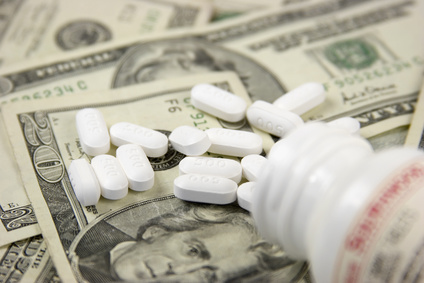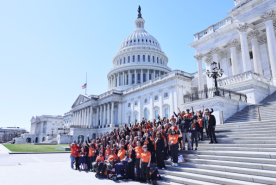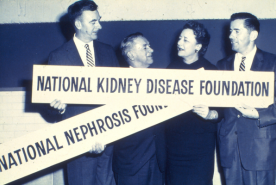August 15, 2022
By Mary Baliker, NKF Kidney Advocacy Committee Co-Chair
As a person living with kidney disease for more than 40 years, I know how important it is to have affordable medications and healthcare. While I was just out of college and entering the workforce, I found myself worrying about how I would pay for my medications. I used multiple credit cards just so I was able to pay for medications – and knew that I was fortunate that I had credit cards. No one should have to decide whether to put gas in your car, food on the table, or pay for the medications that you need to live.
That’s why I was so grateful to see Congress pass the Inflation Reduction Act (IRA), a comprehensive bill that addresses several important issues for Americans, including significant improvements to the Medicare Part D prescription drug program. I was proud to join the National Kidney Foundation and Voices for Kidney Health advocates across the country in urging Members of Congress to pass the IRA because of how those improvements would positively impact members of the kidney community, and I’m so grateful to Congress for heeding our call.
Expanding a Critical Program
Since 2006, the Part D program has assisted millions of Americans with their drug needs. However, some Medicare patients need multiple medications or have very costly medications and therefore affordability has remained an issue. This often forces them to skip filling their prescription, ration their medication, or forgo other necessities to pay for the medications.
The legislation also:
- Limits Part D out-of-pocket expenses for prescription drugs at $2,000 a year.
- Creates a “smoothing mechanism” that allows total out-of-pocket costs to be distributed throughout the year. This is especially important for Medicare patients who experience significant cost-sharing due to co-pays for high-cost prescriptions, or who require multiple drugs to treat their chronic diseases. Some patients reach the out-of-pocket cap in the first quarter of the calendar year.
- Allows Medicare to negotiate prices for a select number of high-priced drugs, further benefiting the patients who rely on them.
- Limits insulin copays for Medicare beneficiaries to $35 per month.
- Contains enhancements to the Low-Income Subsidy (LIS). This program currently provides full or partial subsidies for monthly premiums and cost-sharing depending on the patient’s income and assets. The new bill extends full subsidies to beneficiaries with incomes between 135-150% of the federal poverty level (FPL).
Other health care provisions include zero cost sharing for vaccines. Some, but not all, Part D plans currently provide vaccines without a required co-pay. Americans who obtain their health insurance coverage under the Affordable Care Act will benefit from an extension of an enhanced subsidy that was scheduled to expire at the end of this year. This is particularly important to me at a time when science has shown the importance of vaccinations during the COVID pandemic. We must make vaccinations free to all. Prevention is key and in the long run it will also save money.









